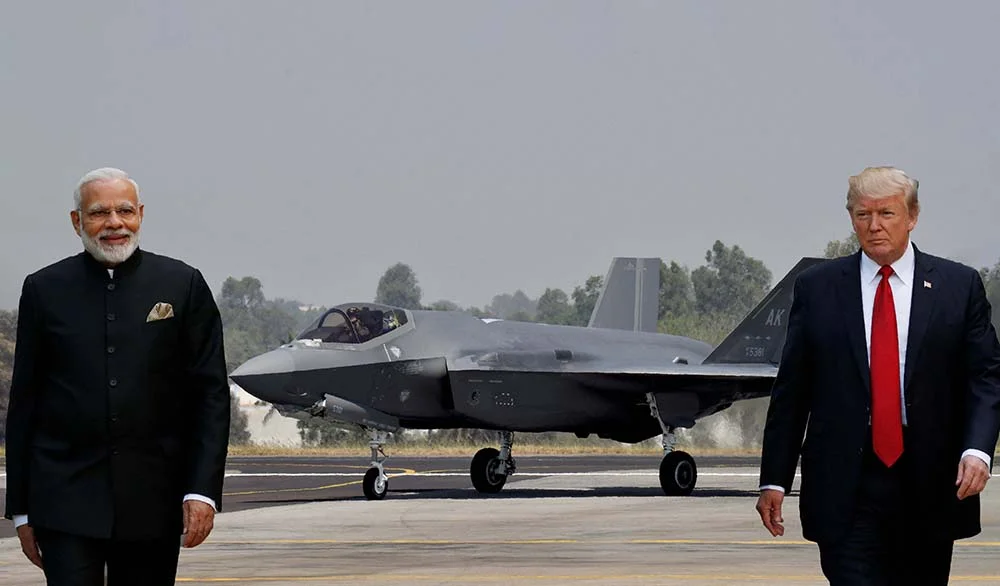India has informed the United States that it is not interested in purchasing the F-35 stealth fighter jets, even as it considers increasing imports of certain non-defence goods to ease trade tensions. This development follows U.S. President Donald Trump’s recent announcement of a 25 percent tariff on imports from India.
According to a report by Bloomberg citing sources familiar with the matter, India is not planning any immediate retaliatory measures. Instead, it aims to maintain a positive environment for ongoing trade talks. As part of this approach, India may raise imports of U.S. natural gas, communication devices, and gold. However, the report clearly states that India has no plans to acquire new defence equipment from the United States.
During Prime Minister Narendra Modi’s visit to the White House earlier this year, Trump had offered to sell the fifth-generation F-35 jets. Indian officials reportedly declined the offer, expressing preference for joint development of defence systems and manufacturing them domestically under the Make in India initiative.
India’s decision not to pursue the F-35 purchase is seen as a significant signal amid U.S. expectations that India would expand defence cooperation. Trump has also warned of possible further penalties due to India’s defence and energy partnerships with Russia. Despite these pressures, the Modi government is unlikely to make additional U.S. defence purchases beyond the contracts already in place. Many of these existing orders are facing years-long delivery delays.
India is now expected to move forward with the purchase of around 50 to 60 Russian Su-57 fighter jets to meet the Indian Air Force’s requirement for fifth-generation combat aircraft. The IAF is planning to induct three squadrons of such jets to strengthen its air dominance in the region, especially in the face of increased aerial capabilities of China and Pakistan.
While India is developing its own fifth-generation fighter jet under the Advanced Medium Combat Aircraft (AMCA) program, the indigenous aircraft is not expected to be operational before 2035. Until then, India will rely on foreign purchases to bridge the gap.
With the F-35 ruled out, and the Su-57 as the only viable alternative currently available in the global market, India’s move signals a strategic tilt towards Moscow. It also reflects New Delhi’s emphasis on defence self-reliance and multilateral partnerships rather than dependency on a single global power.













